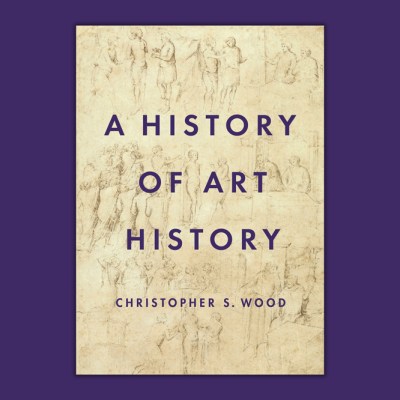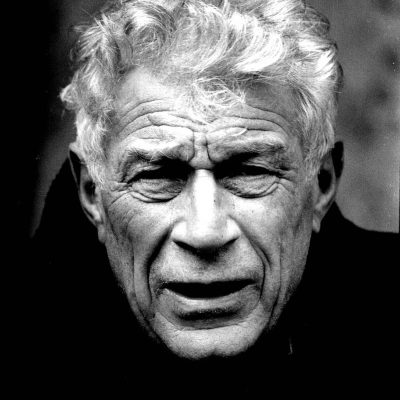Even now it’s hard to grasp the voltage Susan Sontag brought to American arts and letters. She wrote essays and novels and plays. She directed films. She was highbrow enough to appear in the pages of Partisan Review, pop enough to feature in Warhol’s Screen Test series at the Factory. Her pronouncements on aesthetics, illness, US militarism: these galvanised heated debates, helped create academic disciplines, and made her a public figure. Only John Berger’s Ways of Seeing (1972) has any claim to advancing public understanding of the politics and possibilities of photography more than her essay collection On Photography (1977).
She appeared in Woody Allen’s film Zelig, on the cover of Vanity Fair, in an Absolut Vodka ad. Benjamin Moser, in his 832-page biography, points out that ‘never before had a writer who bemoaned the shortcomings in Georg Lukács’s literary criticism and Nathalie Sarraute’s theory of the nouveau roman become as prominent, as quickly, as Sontag did’.
Sontag drew scorn as much as plaudits. She was accused of being pretentious, a Europhile snob – and, at the same time, a cultural vandal. Her essay ‘Notes on “Camp”’ argued that the true ‘aristocrats of taste’ were mostly homosexuals whose ‘aestheticism and irony’ defined the modern sensibility; in doing so, claimed art critic Hilton Kramer, she gave rise to ‘the spiritual bankruptcy of the postmodern era’ and ‘severed the link between high culture and high seriousness that had been a fundamental tenet of the modernist ethos’.
Sontag herself was not afraid of making bold pronouncements: ‘The white race is the cancer of human history’; ‘Writers should be in the vanguard of the dissenting minority’; 9/11 was ‘an attack on the world’s self-proclaimed superpower, undertaken as a consequence of specific American alliances and actions’. Seriousness was her forte, her brand. It always had been. At the age of 14, writing in her journal (one of nearly a hundred she filled), she declared, ‘Basically, I believe Schopenhauer to be wrong. In making this statement I am considering only the most elemental portion of his philosophy: the inevitable barrenness of existence.’ The Frankfurt School philosopher Herbert Marcuse would later sigh, ‘She can make a theory out of a potato peel.’
Yet Sontag wasn’t really a theorist. She didn’t have much time for schools of thought. (Feminists such as Adrienne Rich clashed with her.) Her interests were more vitalist. ‘What is important now is to recover our senses,’ she argued. ‘We must learn to see more, to hear more, to feel more.’ For her, art was inseparable from life: ‘The wisdom that becomes available over a deep, lifelong engagement with the aesthetic cannot […] be duplicated by any other kind of seriousness.’ She relished her stint as president of PEN American Center in the late 1980s, and in 1993 staged a production of Waiting for Godot in wartime Sarajevo that led to the plaza in front of Bosnia’s national theatre being named Susan Sontag Square.
Sontag came to prominence at a period when, according to Norman Podhoretz, ‘The physical sciences apart, literary criticism […] was probably the most vital intellectual activity in America, and the most vital branch of literature itself.’ That may or may not be true, but it’s hard to imagine anyone even making the claim today. How many contemporary writers would be allowed (repeatedly!) to keep sizeable advances for books they didn’t produce? Or be added to their publisher’s health insurance scheme, as she was at Farrar, Straus & Giroux? No wonder a former lover says that Sontag understood politics in terms of existential self-creation rather than mundane things like building homes or public infrastructure.
That Sontag didn’t suffer fools gladly makes it all the more fun to read about her own foolishness. Pregnant with her son at the age of 19, she didn’t understand what he meant when her husband told her one night that her water had broken. Later she expressed bewilderment that childbirth was so painful. Moser’s biography is full of lovers complaining how useless she was both in relationships and in bed. She had a fondness for what she called ‘excremental food’ such as hundred-year-old eggs and snails covered with flies. More often though she simply forgot to eat, subsisting on coffee, cigarettes and amphetamines (the latter occasionally scored from W.H. Auden).
More important are Moser’s discussions of her timidity – bordering on shame – about her sexuality. ‘Being queer makes me feel more vulnerable,’ she once confessed. Moser thinks this led to timid prose and says that the focus on ‘metalinguistic critique’ in AIDS and Its Metaphors (1989) makes the book ‘thin, dainty, detached’. She saw herself as beyond labels and would tell black writers not to dwell on their blackness.
Moser is especially sceptical about Sontag’s final book, Regarding the Pain of Others (2003), in which she declares that those who have not experienced war first-hand ‘can’t understand, can’t imagine’ what war is actually like. In a passage that strikes me as very pertinent to contemporary debates about cultural identity, he writes: ‘The point of representation is to allow the reader or viewer to enter another person’s experience […]. To say otherwise is to say that a black person can never understand a white person, or a man a woman, or a Chinese a Bosnian: to say that no person can ever understand another […]. Art and metaphor do not make other people’s experiences identical. They make other people’s experiences imaginable.’
Sontag’s ineptitude as a mother, her casual mendacities, her pomposity about being a novelist: it’s all here. But now more than ever, surrounded as we are by elected and elective morons, pummelled by privately educated thought-controllers who dismiss anything learned as elitist, Sontag stands tall and necessary, a one-woman resistance.
Sontag: Her Life by Benjamin Moser is published by Allen Lane.
From the December 2019 issue of Apollo. Preview and subscribe here.



